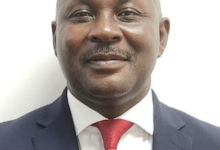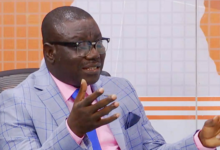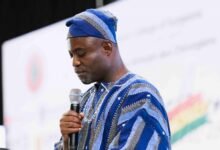
The Institute for Democratic Governance (IDEG) has said the decision by the Electoral Commission (EC) to restrict its limited voter registration exercise to its District Offices despite opposition from stakeholders is problematic.
By limiting the registration to the district offices, would come at a cost to qualified registrants by way of transportation and that could unintendedly exclude persons who cannot bear that cost.
In the view of the IDEG, the exercise should have taken place at the electoral area level to meet potential registrants halfway in their desire to participate in the electoral processes of the country.
“The decision by the EC to undertake the limited voter registration exercise at its district offices is problematic in a sense that it comes at a cost to respective voters. Because it imposes a cost, only those who can afford will be able to register to vote and that is problematic,” a Senior Research Fellow at the institute, Dr Kwesi Jonah, told the Ghanaian Times in an interview in Accra yesterday.
The Commission, Dr Jonah said, must consider an extension when the exercise which takes off today ends on October 2, 2023.
The exercise is in line with Article 45(a) of the Constitution which mandates the EC to “compile the register of voters and review it at such periods as may be determined by law”.
The decision to limit the registration to only the district offices has been opposed by some civil society organisations, and other stakeholders including political parties who are already in court seeking to injunct the exercise.
The exercise is in anticipation of the District Assembly elections which is scheduled for December 19, 2023.
In view of this, the EC, Dr Jonah said, should be encouraging and promoting democratic practices as conferred on it by the 1992 Constitution by expanding the frontiers of the voter registration exercise.
Per the constitutional provision in Article 45(e), the Commission is expected to “undertake programmes for the expansion of the registration of voters”.
The above provision, Dr Jonah said, placed an obligation on the EC to dialogue with stakeholders and open up the space for many more people to partake instead of limiting access.
“The EC should be encouraging and promoting the participation of Ghanaians in the democratic process as demanded of them by the 1992 Constitution,” he stated.
He said with the district level election scheduled for December, it should be the preoccupation of the Commission to get as many people onto the roll to participate in the election.
According to him, the district level governance vehicle was very important for the comprehensive development of the country and citizens must be encouraged to participate “and they can only do if they are registered as voters”.
“It is at this district level that basic social services and amenities like schools, potable water, CHPS compounds, are delivered. They are very important. I don’t think we are helping to promote that exercise by limiting the exercise to district offices,” he said.
BY JULIUS YAO PETETSI







